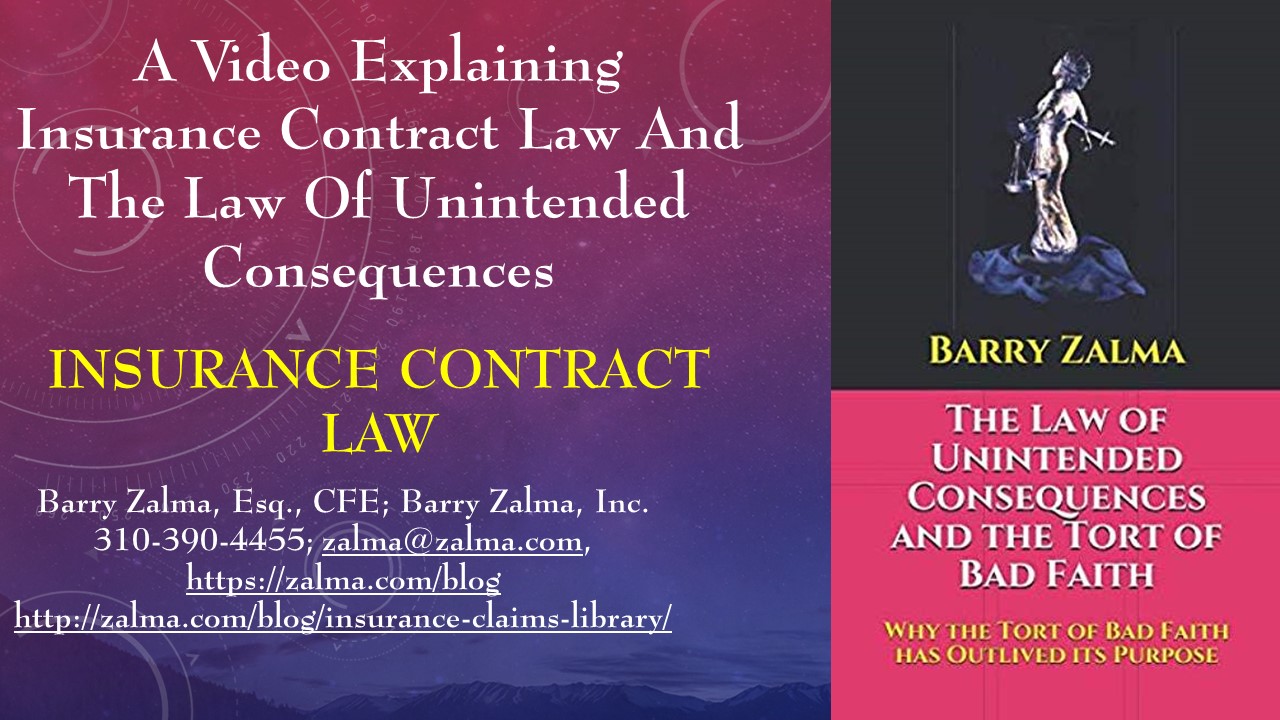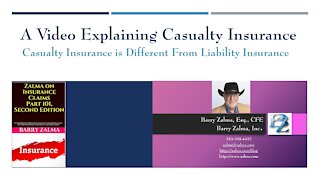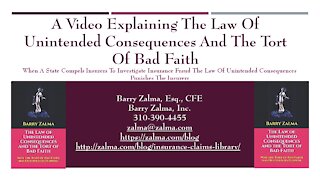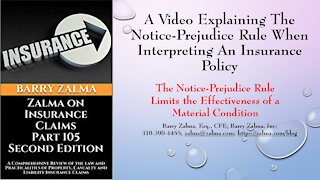Premium Only Content

A Video Explaining Insurance Contract Law and the Law of Unintended Consequences
Insurance Contract Law
In a typical contract, one party has a duty to perform (construct a building, deliver goods, convey real estate, pay indemnity) and the other party has a duty to pay money. Breach by the performer may take the form of nonperformance, defective performance, or delay in performance. The primary purpose of damages for breach of a contract is to protect the promisee’s expectation interest in the promisor’s performance. Damages should put the plaintiff in as good a position as if the defendant had fully performed as required by the contract. Damages should never provide a profit to the non-breaching party.
Insurance is nothing more than a contract where the insurer promises to defend or indemnify an insured as a result of a contingent or unknown event that causes damage to the property of the policyholder or injury to a third party caused by the policyholder.
Insurance, like all parts of modern society, is subject to the deprivations of the law of unintended consequences. In the USA alone people pay to insurers more than $1.2 trillion dollars in premiums and insurers pay out in claims as much or more than they take in. Profit margins are small because competition is fierce and a year’s profits can be lost to a single firestorm, earthquake, hurricane, flood or unexpected bad faith law suit.
Neither the courts nor the governmental agencies seem to be aware that in a modern, capitalistic society, a healthy and viable insurance industry is a necessity. No person would take the risk of starting a business, buying a home or driving a car without insurance. The risk of losing everything would be too great. By using insurance to spread the risk among all the costs of taking the risk to start a business, buy a home or drive a car becomes possible. The persons insured are dependent on their insurer to take the risk the insureds are not willing to take alone.
Insurance contracts can be simple or exceedingly complex, depending upon the risks taken by the insurer. Regardless, insurance is only a contract whose terms are agreed to by the parties to the contract where each make promises upon the other relies.
Over the last few centuries almost every word and phrase used in insurance contracts have been interpreted and applied by one court or another. Ambiguity in contract language became certain. However, the average person saw the insurance contract as incomprehensible and impossible to understand.
-
 7:40
7:40
Barry Zalma, Inc. on Insurance Law
1 year agoLoss of Inventory by Bankruptcy
166 -
 16:42
16:42
Barry Zalma, Inc. on Insurance Law
4 years agoA Video Explaining Casualty Insurance
76 -
 16:18
16:18
Barry Zalma, Inc. on Insurance Law
4 years agoA Video Explaining the Law of Unintended Consequences and the Tort of Bad Faith
33 -
 17:29
17:29
Barry Zalma, Inc. on Insurance Law
4 years agoA Video Explaining the Nature of Insurance Underwriting
36 -
 16:33
16:33
Barry Zalma, Inc. on Insurance Law
4 years agoA Video Explaining How to Read Your Homeowners Insurance Policy
146 -
 18:10
18:10
Barry Zalma, Inc. on Insurance Law
4 years agoA Video Explaining How the Law of Unintended Consequences Destroyed the the Tort of Bad Faith
54 -
 14:25
14:25
Barry Zalma, Inc. on Insurance Law
4 years agoA Video Explaining the Importance of Warranties in Insurance Contracts
45 -
 20:42
20:42
Barry Zalma, Inc. on Insurance Law
4 years agoA Video Explaining the Duties of the Public Insurance Adjuster
60 -
 11:53
11:53
Barry Zalma, Inc. on Insurance Law
4 years agoA Video Explaining The Tort of Negligence and Construction Defect Insurance
91 -
 17:01
17:01
Barry Zalma, Inc. on Insurance Law
4 years agoA Video Explaining the Notice-Prejudice Rule When Interpreting an Insurance Policy
45